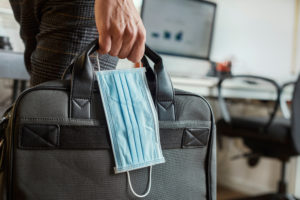
Back in March, the U.S. Department of Transportation’s Federal Motor Carrier Safety Administration (FMCSA) suspended Hours of Service (HOS) laws. The agency’s decision, made after President Donald Trump’s declaration of a national emergency in response to the coronavirus pandemic, was to support commercial motor carriers and truck drivers transporting goods and services for COVID-19 emergency relief. The suspension was to end on July 15. However, because the pandemic has continued, it will stay in place until August 14.
What are Hours of Service laws?
HOS laws are safety rules for the trucking industry designed to limit commercial truck drivers’ hours on the road to prevent crashes, injuries and deaths involving trucks and buses. The rules, first established in 1938, also give protection to the drivers ensuring they are able to rest in between work shifts.
What materials or services are still exempt from HOS laws due to COVID-19 relief?
The announcement of the extension has a shortened list of exemptions from the original emergency declaration. Here is a look at what is still considered COVID-19 emergency relief and exempt from HOS laws: Livestock and livestock feed; medical supplies and equipment for COVID-19 testing, diagnosis and treatment; supplies related to safety, sanitation and prevention of community transmission including disinfectants, gloves, masks and soap and hand sanitizer.
Some items that were originally included in the COVID-19 HOS laws exemption have now been removed. Those materials and services include medical personnel transport; fuel and liquefied gases for refrigeration or cooling systems; toilet paper and other paper goods; precursor raw materials required for the manufacture of medical equipment and other supplies such as paper and plastic.
Is there concern for truckers falling asleep at the wheel due to an increased workload?
When the FMCSA announced the extension, it also reviewed basic safety rules all truck drivers must follow at all times. Although the suspension of HOS laws gave drivers transporting a load associated with COVID-19 emergency relief the ability to work longer hours, they must take a minimum 10-hour off-duty break between jobs. And, if a driver informs the motor carrier that he or she needs immediate rest, the driver must be allowed to take the ten consecutive hours off.
If you or a loved one is involved in a traffic crash with a commercial truck, contact the personal injury attorneys at Murray & Murray Co., L.P.A. in Ohio today to discuss your legal options.

Partner at Murray & Murray Co., L.P.A.














Comments for this article are closed.